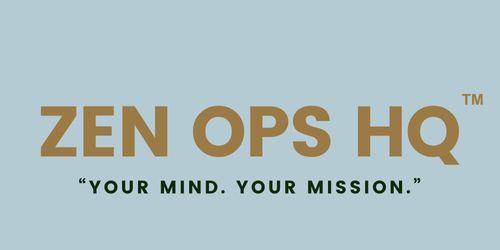
Understanding Survivor Guilt: A Compassionate Guide for Warriors
Survivor guilt is a profound and often misunderstood experience that many warriors carry. Whether you've survived trauma, loss, combat, abuse, or any life-altering event while others didn't, the weight of "why me?" can feel unbearable. If you're struggling with survivor guilt, please know: your feelings are valid, and you deserve compassion—especially from yourself.
What is Survivor Guilt?
Survivor guilt occurs when someone who has survived a traumatic event feels guilty for surviving while others suffered or didn't survive. It's a common response to trauma that can manifest as:
- Persistent thoughts like "I should have done more" or "I don't deserve to be happy"
- Feeling responsible for outcomes beyond your control
- Difficulty celebrating achievements or experiencing joy
- Hypervigilance about the wellbeing of others
- Self-sabotaging behaviors or refusing to move forward in life
Why Survivor Guilt Happens
Survivor guilt isn't a character flaw—it's a trauma response. Our brains try to make sense of senseless situations by creating narratives of control. If we believe we could have prevented something, it feels less random and terrifying. But this false sense of control comes at a cost: we blame ourselves for things that were never our fault.
The Truth About Survival
Here's what you need to hear:
- Your survival is not a betrayal. Living is not disloyal to those who didn't survive.
- You are not responsible for random chance. Survival often comes down to factors completely outside our control.
- You deserve to live fully. Dimming your light doesn't honor anyone's memory—living authentically does.
- Guilt is not the same as responsibility. Feeling guilty doesn't mean you did something wrong.
Trauma-Informed Ways to Navigate Survivor Guilt
1. Acknowledge Your Feelings Without Judgment
Your guilt is real, even if it's not rational. Don't try to logic it away or shame yourself for feeling it. Simply notice: "I'm experiencing survivor guilt right now."
2. Challenge the Narrative Gently
Ask yourself with compassion:
- What evidence do I have that I'm responsible?
- Would I blame someone else in my situation?
- What would I tell a friend experiencing this guilt?
- Am I confusing correlation with causation?
3. Honor Your Grief
Survivor guilt often masks deep grief. Allow yourself to mourn what was lost—lives, innocence, the way things used to be. Grief and guilt can coexist, but grief is the more honest emotion.
4. Find Meaning, Not Justification
You don't need to justify your survival. Instead, consider: How can you honor your experience? This might look like:
- Advocacy or activism related to your experience
- Supporting others who've faced similar trauma
- Living in alignment with your values
- Creating art, writing, or other expressions of your journey
5. Practice Self-Compassion
Treat yourself with the same kindness you'd offer someone you love. You did the best you could with the information and resources you had. That's all anyone can do.
6. Seek Professional Support
Survivor guilt can be complex and deeply rooted. Working with a trauma-informed therapist trained in modalities like EMDR, somatic therapy, or CPT can be transformative. You don't have to carry this alone.
Permission to Live
If you're reading this and struggling with survivor guilt, I want to offer you something: permission to live. Permission to experience joy, to pursue your dreams, to laugh without guilt, to move forward without forgetting.
Your survival matters. Your life has value. And choosing to live fully—not despite your survival, but because of it—is one of the most courageous acts a warrior can undertake.
You are not betraying anyone by healing. You are not dishonoring anyone by thriving. You are simply being human, doing your best to navigate an impossible situation with grace.
Resources for Support
- National Suicide Prevention Lifeline: 988
- Crisis Text Line: Text HOME to 741741
- SAMHSA National Helpline: 1-800-662-4357
- Veterans Crisis Line: 1-800-273-8255 (Press 1)
Warrior, you deserve wholeness. You deserve peace. And you deserve to live without the weight of guilt that was never yours to carry.
Have you navigated survivor guilt? What helped you on your journey? Share your wisdom and support others in the comments below.

